- Home
- Jane Arbor
Jasmine Harvest Page 9
Jasmine Harvest Read online
Page 9
Airily, “Not at all. On so short an acquaintance as ours that would be—impudent. Besides, ask yourself—why should I do Berthin’s courting for him, except by reason of my reputation for having too much know-how and even more practice? But I didn’t do my army service for nothing, and I’m merely employing the military tactic known as ‘appreciating the situation.’ In other words, gauging what the enemy may be up to, before he’s up to it, if you see what I mean?”
“I think I do.” Not needing to ask, yet hoping he wouldn’t confirm it, Caroline said, “In this case, the enemy being Berthin?”
The car purred up the last short street, out on to the Croisette and whispered to a halt at the garish entrance to the Bar Soleil before she got a reply. Then, leaning to open the door on her side, enabling her to alight, Paul said, “Of course. Who else?” and swept effortlessly into the stream of traffic going his way towards the Yacht Club and his luncheon date with Ariane Lescure.
The following day found Caroline more than once in regret for her lost chance to explore the estate alone, at leisure and on foot.
For Paul’s strictures on Berthin as a guide had been shrewd. Anxious as he was to show her everything of interest, he somehow contrived to make the expedition an academic exercise in topography and facts and figures, inviting her to marvel at them, rather than at the sheer beauty and fragrance of the myriad flowers and herbs and shrubs which marched across the levels towards the horizon or kept their regimented ranks along the terraced hillsides.
Of a comparatively small square of violets, cultivated in the shade of silver-foliaged olives and dormant now under their leaves, he told her, “We crop them from January to March, or into April if the season is late. Sixty years ago the whole region used to send them to the perfumeries by the two hundred thousand kilograms and at three times the price of jasmine. But they don’t process well, and Parma Violet as a perfume is out of fashion, which makes it unprofitable to grow them in quantity now,” said Berthin.
And of the lavender which since late July had purpled the hill slopes on which it grew—“It extracts, on average, at about a kilo of essence from a hundred and seventy-five kilos of blossom, and it must be distilled quickly, answering only to steam distillation.”
And again, of the roses, at their best in May and mostly blown now, though here and there still gay—“A good season’s average is about three thousand kilos’ weight to the hectare with, in turn, a thousand or so buds to each kilo. After planting, they need comparatively little attention or watering. But they don’t crop until the end of their second year, and even then after a cold winter, ten to fifteen per cent must be replaced—” and so on until, around noon, he drew the estate car on to a natural lay-by formed by a bluff of rock and suggested they should eat the picnic lunch they had brought with them.
Caroline, feeling slightly bludgeoned by statistics, was only too glad to agree. And while they shared Ursule’s excellent paté, crusty French bread and dairy butter, washed down by a bottle of regional wine and followed by tiny, sweet green grapes as dessert, Berthin began to talk without reserve about Paul, and she was listening eagerly ... too eagerly for any further pretence that, for the oldest reason in the world, she wasn’t greedy to share talk about him and to look at him through eyes other than hers.
Pouring more wine for her and draining the bottle into his own glass, Berthin said, “It’s good to dawdle a while. But when you feel you’d like to make a move, I propose to show you the plantage Fragonard, which is Pascal owned but which lies off the estate proper, some kilometres toward Grasse.”
“Fragonard? That’s the mimosa plantation, isn’t it?” Caroline asked.
“Yes. The direct way to it runs up from behind your villa, but we can strike across to it from here. Of course, as a spectacle it’s at its best in January and February, which is when they hold the mimosa fetes in the town. At this time of year, I’m afraid, it’s only a source of anxiety, one of the worst headaches I have, owing to its liability to fire at a touch.” Berthin paused before adding, as if along the same line of thought, “In fact you could say the situation regarding Fragonard pinpoints the whole unnecessary issue between my cousin and me, showing up as it does the shortcomings of my stewardship for him and his laisser faire attitude, when it isn’t downright obstructive, which it sometimes is.”
Caroline said, “That’s how Ursule said you regard yourself—as a steward for Paul. But you’re too modest, surely? You are more than that?”
“Not as I see matters. Nor, I imagine, as Paul’s father foresaw them when he made his will. Because though he insisted on the terms of it against the advice of his attorney, I’m convinced he only intended it as a kind of last-ditch stand on a false dignity he had no right to, and which Paul, into the bargain, knew he hadn’t.”
Caroline’s brows drew together. “I don’t understand. I thought Ursule said he was determined to punish Paul for his part in some scandal and also for his laxity or outright inefficiency on the estate?”
Berthin frowned. “It’s not the first time Ursule has perpetuated that version, though knowing that at least part of it isn’t true. Which makes it very wrong of her and without excuse, except, I’m afraid, the extent to which she feels she has to range herself on my side—against Paul.”
“You mean—” Caroline’s voice was unsteady with hope—“the story about Fanchon Raguse wasn’t true?”
“Ah, that part—No, Paul himself has seen to it that he is the only one to know the rights and wrongs of that. But for the rest, as he realizes well enough, it was simply my uncle’s way of paying him out for daring to be right in a single issue in dispute between them, where he, Gabriel, had been wrong.”
Much as she would rather have had the sad, ugly shadow of Fanchon Raguse dispelled, Caroline felt relief wash over her. It was not all, but it was something, that Paul was not wholly the dross which Ursule’s malice against him would have her believe. She told Berthin quietly, ‘Tm glad about that. But what was this clash between Paul and his father?”
Berthin hesitated. “You may find it a trifle technical,” he warned.
“I shan’t.” After the morning’s array of indigestible facts, give or take a few more and what matter? And if it vindicated Paul...
“Well then, you’ll recall the big terraced jasmine plantation which steps down south of Maison Pascal itself?”
As Caroline nodded—“So!” he continued. “A couple of seasons before Gabriel died, that was newly planted with fresh stock at Paul’s recommendation of the suitability of the site and wholly under his direction. But in its first year it fell victim to a form of root rot which locally they call mouffe and which we, in the analytical laboratories, known as rosellinea necatrix—a killer which takes hold like wildfire with two main known causes. The most likely, a failure to clear the soil before planting of every vestige of old roots of, say, fig-trees or olives and the like; the other, the importation of the disease in the grafts obtained from the specialist nurseries of such things. You understand ‘graft’, I take it?” Berthin paused to ask.
“Oh, yes.”
“Good. Alors, Gabriel chose to jump to the obvious, accusing Paul of planting in sour ground. Paul, denying this, insisted that the nursery at Vesubie or Nervi, I forget which now, should send the suspect parent stock for analysis, and in the event he was proved right. The nursery had to accept liability; the plantation was grubbed up, the stock burnt, the soil disinfected, re-set with healthy cuttings—and you see it now, ripe for a bumper crop before long. It was only Gabriel who couldn’t put the disaster behind him, and seemingly never did until the day of his death.”
“But he ought to have been grateful to Paul over the whole thing!” Caroline protested.
“Ought—yes. But I think gratitude wasn’t in his nature, where his own judgment had been proved at fault. Also I can picture his chafing over having pooh-poohed, according to Paul, the first tell-tale signs of mouffe into which Paul read instant danger and acted at once.”
>
“Yet surely all this must be pretty generally known by now, mustn’t it? By all Paul’s friends and by everyone on the estate?” puzzled Caroline.
“Strangely, no. Or perhaps not so strangely. The case, I remember, went through as Prairies Pascal against the nursery, nothing personal about it. So if Paul didn’t publicize his part in it, you may be sure his father didn’t. And whether that was Paul super-loyal, or Paul digging in his heels in his own brand of stiff-necked pride, could be anyone’s guess. Around here at the time there was probably talk on both sides. But I was in Grasse and, for one, shouldn’t know the truth of it, except through my laboratory connections and through taxing Paul with it since I’ve been in control here.”
Caroline said slowly, “You mean—Paul allowed Monsieur Pascal to shelter behind him, and that—that unfair clause in the will, I mean—was his reward?”
“Yes, though you shouldn’t forget that between that quarrel and my uncle’s death, there was l’affaire Raguse which, in view of Paul’s attitude over it, did him no good, and which, if the old man needed to justify to himself the petty revenge he intended, could give him excuse enough. But it was merely pettiness, of course. For one can only suppose that, in framing that clause as he did, he must have realized he was leaving the door wide open for Paul to nullify its effect exactly when he chose.”
“But not if you married before Paul, surely?”
Berthin smiled. “Ah, but I think my uncle was shrewd enough to take a chance on the improbability of that! Oh, yes, I’ve been in love—admittedly. But only once, and a long time ago. And I'd say it could hardly escape anyone that I’m too set in my bachelor ways to think of marrying now—hm?”
“I think Ursule still hopes you will,” Caroline offered tentatively.
“No.” He shook his head. “If she says so, that's only her ambition for me speaking, bless her. That—or a hostility towards Paul which I’m afraid she rather enjoys. But she knows very well that I’m happy enough as I am. Or rather, as happy as I hope to be again, once I’m free of all this—” he waved an expressive hand at the landscape—“and as happy as Paul should be, to be well rid of me.”
“You mean you didn’t want to take on the responsibility of the estate?”
“Want it? Mon dieu, no! My dear girl, I’m a scientist of sorts, a laboratory botanist; a test-tube and microscope chap, not a practical flower farmer! Even now I don’t pretend to know what it’s all about, and if I fool my latest engaged unskilled laborer, that’s about all I do!”
“What nonsense!” Caroline exclaimed. “Look at all you’ve told me about the crops this morning, for instance, and say if you dare that you don’t know what it’s about!”
“Yes—facts, figures, they can be learned. And so can desk work. But husbanding soil, seeding, planting, cherishing, harvesting—the how, when and where of it all—and even the managing of labor, they clamor for the kind of flair Gabriel had; of which Paul has more than any man in the region and which simply isn’t in me. So you see, if all Gabriel did want was to administer a sharp rap to Paul’s self-esteem, as far as the estate was concerned, his decision to put me in control of it could hardly have been more ill-advised.”
Caroline said stoutly, “If you ask me, he knew very well what he was doing when he chose you. He couldn’t have picked anyone more conscientious or loyal, at any rate.”
“Mm.” Berthin shook crumbs from their picnic plates and began to repack the hamper. “But a concern like Pascal isn’t run on loyalty alone, as Paul doesn’t fail to make clear.”
“And he doesn’t help, does he?”
“Not noticeably! Though, except when he contrives to drive my patience to its limit, I manage to tell myself that that’s his pride making its stand, and that if I cared for Pascal as he does, I’d probably react in much the same way.”
Feeling she could hug him for his generous toleration of that, Caroline said, “I think I can understand it too. But surely he must know you would welcome his co-operation if he would give it? Because you would, wouldn’t you?”
“Welcome it! What do you think? And if he doesn’t know now, it’s not for want of telling. But when it comes to building walls of hostility, he and Ursule have nothing to teach each other, and even if he wanted to, I doubt if he could bring himself to look for a way over or round his. So I imagine my only hope of release from the whole set-up will have to be the news that he is going to marry—and the sooner the better, say I. Except that—”
As Berthin broke off Caroline was scrambling to her feet and brushing larch cones and pine needles from her skirt. “Except, that?” she prompted.
A Gallic shrug. “Just that I’m old-fashioned enough to hope he doesn’t solve matters by marrying a divorcée, which seems likely,” Berthin said, and led the way back to the car.
Privately Caroline found the plantage Fragonard disappointing. For “mimosa”—however deceptively in early August!—conjured an inevitable picture of a cloud of gold against a background of ineffable green, of puffballs feathering pollen, of nostalgic perfume. But of these the trees’ dull grey stems, withered and browning fronds and flat pea-pod fruits seemed to have neither memory nor hope.
She said so to Berthin, and he agreed with her that at this time of year only the extent—rank upon rank of mature trees cluttered by a daunting undergrowth of self-sown seedlings—was worth remark.
“Of course,” he said, “I ought to have a small army at work on it, clearing it. But I simply can’t spare the labor, so what will you? And look at this—” Stooping, he picked up a glinting piece of glass and offered it to her to touch before putting it into his pocket. “Almost red-hot, you see? Asking for fire, though at least it’s rash enough to give itself away by winking at one, which the half-stubbed cigarette butts don’t. However, as Paul doesn’t tire of reminding me, it’s all my headache and only mine.”
They returned again to the car and were about two kilometres on the way home when the engine checked on a slight slope, took heart again at the pressure of Berthin’s foot on the accelerator but finally died a few paces further on.
“What the—” he puzzled, and was about to alight to investigate as Caroline drew his attention to the petrol gauge', its finger pointing “Zero.”
“Empty? That’s not possible!” he protested. But it was, and lacking a spare can, they had no choice but to hope to hail some passing knight-errant who had.
The countryside was drowsing in siesta and they had some time to wait, doing so at a strategic bend in the road from which they could watch both ways along it for some distance.
The first driver who came along could not help them. The second ignored their signals. “Thinks we’re trying to thumb a lift!” grumbled Berthin and, at the sound of a third a long way off, stood wide-legged in the roadway, prepared to flag it down.
But the urgent semaphore of his arms was not needed. At its driver’s first sight of him the long open car slowed, stopped, and it was Paul who lifted his sun glasses to wave a salute at Caroline, seated on a knoll at the roadside, and to lean out to speak to his cousin.
“In trouble? What’s wrong?” he asked.
“Nothing much. But, idiot that I am, I’ve run out of petrol. Have you any to spare me?”
“Yes, there’s a can with a litre or two in it in the boot.”
“May I borrow it?”
“Naturally.”
The can was handed over. But as Caroline made to accompany Berthin back to where they had abandoned the car, he said, “No need. If you’ll wait here, I’ll fill up and come along for you,” and went off down the road with his burden.
Meanwhile Paul, back in his driving seat, was surveying Caroline on her perch with a speculative eye.
“Me,” he said, using a French idiom but speaking English, “I’m on my way to disport myself in Nice in whatever way gives. You wouldn’t care to switch conducted tours and chauffeurs and come along?”
“Of course not! What do you expect?”
“
Laying it on with a trowel whose company you prefer? Ah, well, I suppose it only goes to show—”
“Show what?”
Switching on his engine, he listened critically to its purr. Then, his smile seraphic, “Just that apparently a hoary gimmick like running out of petrol can still work. And though the timing needs polish—I mean, where’s the future in shanghaiing a girl on a public highway in full afternoon?—it does rather look to the naked eye as if the enemy isn’t doing too badly on the whole...”
A few seconds later his car was no more than a speeding arrow pointing at the road ahead of it; then a mere blur in the distance, a sounding horn, then nothing at all.
CHAPTER SIX
Neither Berthin nor Ursule were at Paul’s party. But to judge by the crowd of cars on the gravelled courtyard in front of his house and in the paved yard beside it, he, Ariane Lescure and Betsy between them had invited everyone else they could possibly know.
Small as was Betsy’s, “bubble-gum,” there was scarcely room to park it, and as they walked towards the house Caroline teased, “I wonder if the night-spots of Cannes and Nice are asking themselves what can have decimated the population? Anyway, I thought you despised Ariane's habit of never giving a party without having the world and his wife at it?”
“Only when, after giving you to understand she’s bidding you to a cosy get-together with, say, a couple of other people over a bottle of vin ordinaire and a jacket potato, you arrive to find the champagne and caviare flowing,” Betsy retorted. “But as soon as Paul took this party out of my hands and insisted on holding it here, I knew he meant it to be quite something. No fireworks though, worse luck, because of the stray sparks firing the near plantations. So he’s laid on a terrific floor show for around midnight instead—Oh dear, there’s Ariane queening it on the terrace already. There—in that slinky fishtail thing ... And with another different man! But no, I believe he’s only that Polish assistant of hers. Witold Czinner. He doesn’t signify, though I suppose her not having a man-sized escort in tow means she’s going to concentrate on Paul the whole evening. She would!”

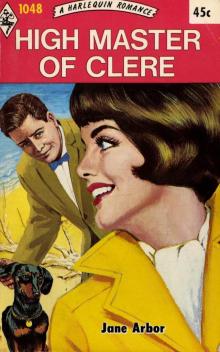 High Master of Clere
High Master of Clere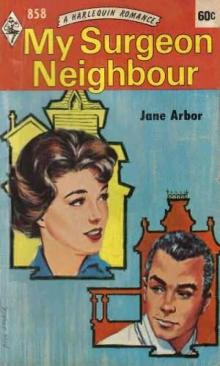 My Surgeon Neighbour
My Surgeon Neighbour Lake of Shadows
Lake of Shadows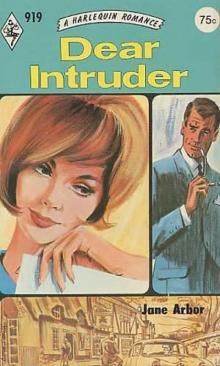 Dear Intruder
Dear Intruder Flash of Emerald
Flash of Emerald Return to Silbersee
Return to Silbersee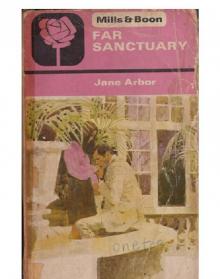 Far Sanctuary
Far Sanctuary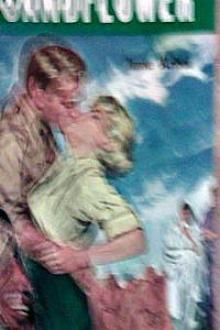 Sandflower
Sandflower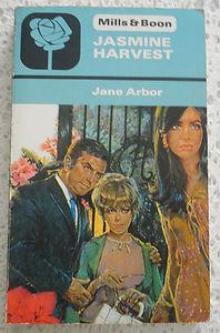 Jasmine Harvest
Jasmine Harvest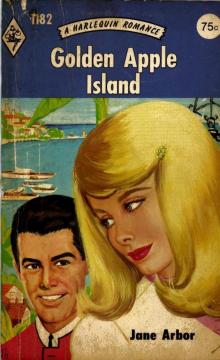 Golden Apple Island
Golden Apple Island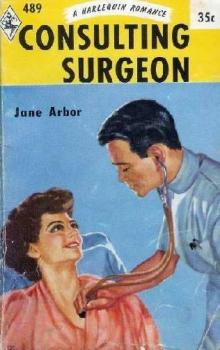 Consulting Surgeon
Consulting Surgeon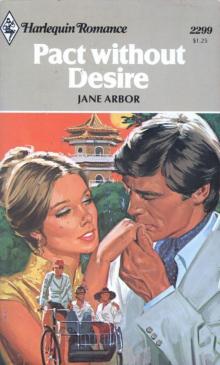 Pact without desire
Pact without desire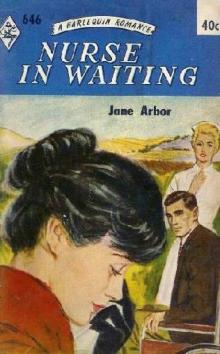 Nurse in Waiting
Nurse in Waiting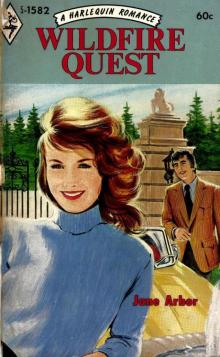 Wildfire Quest
Wildfire Quest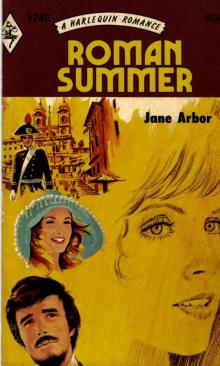 Roman Summer
Roman Summer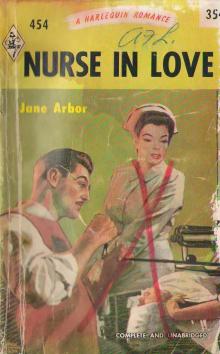 Nurse in Love
Nurse in Love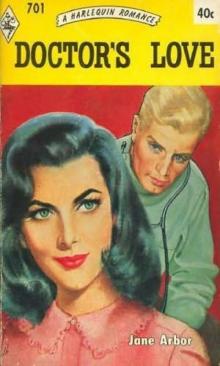 Doctor's Love
Doctor's Love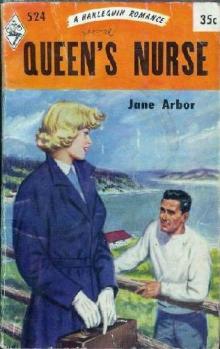 Queen's Nurse
Queen's Nurse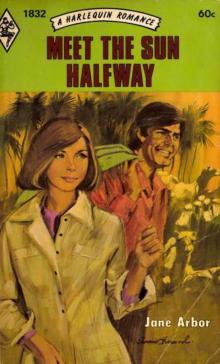 Meet the Sun Halfway
Meet the Sun Halfway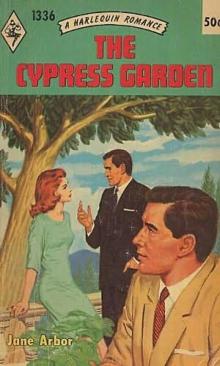 The Cypress Garden
The Cypress Garden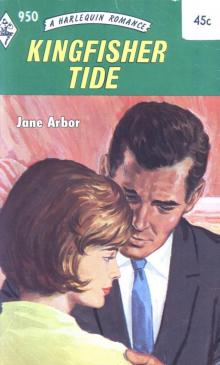 Kingfisher Tide
Kingfisher Tide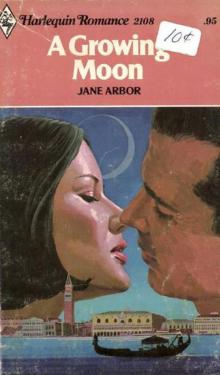 A Growing Moon
A Growing Moon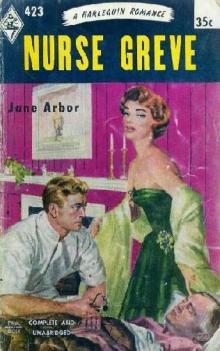 Nurse Greve
Nurse Greve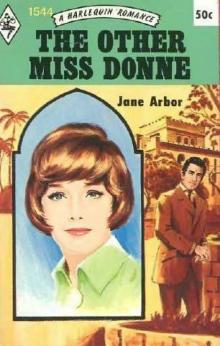 The Other Miss Donne
The Other Miss Donne